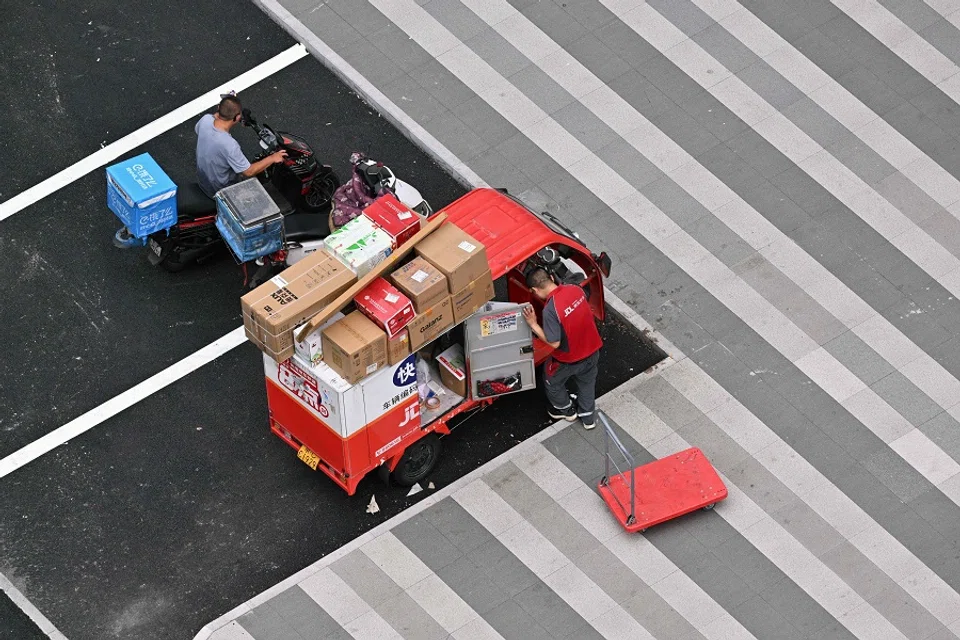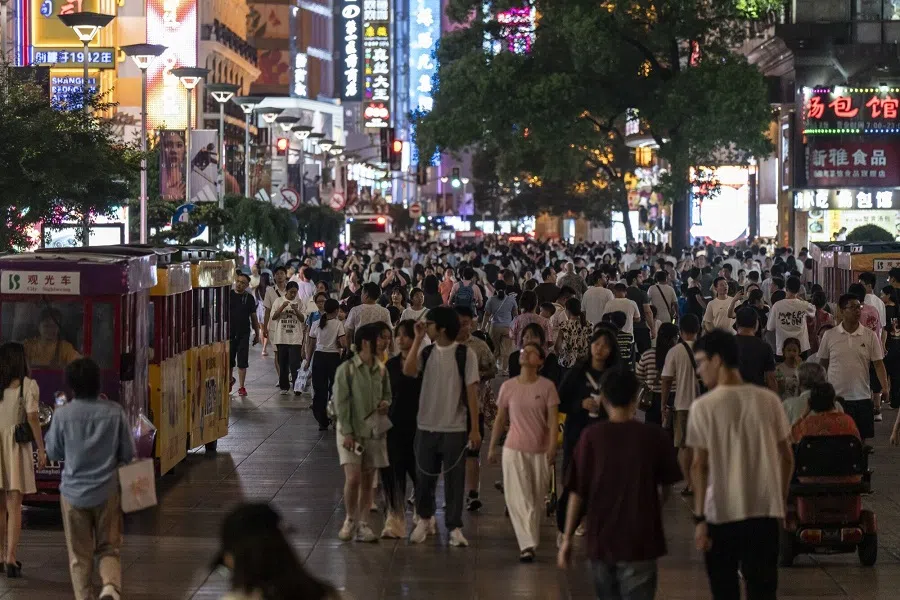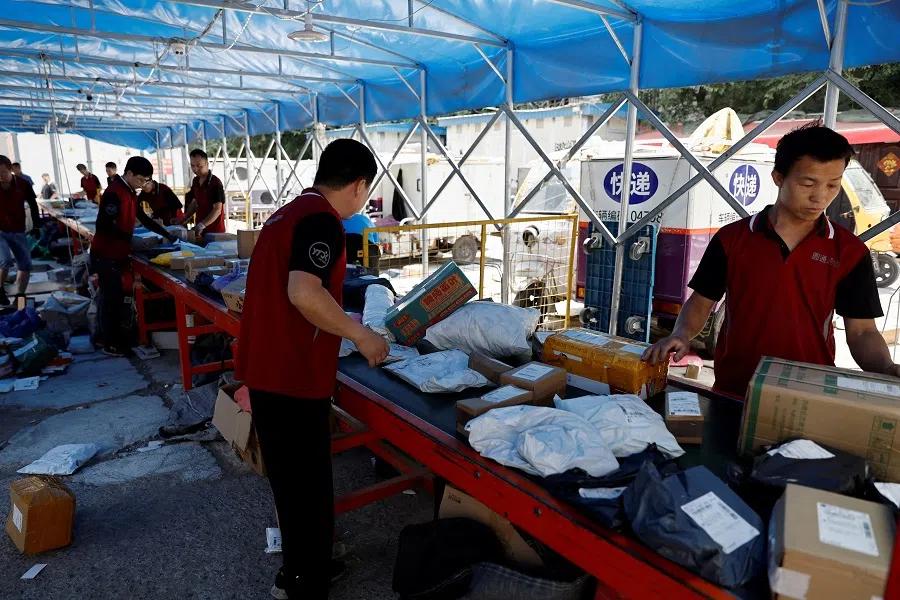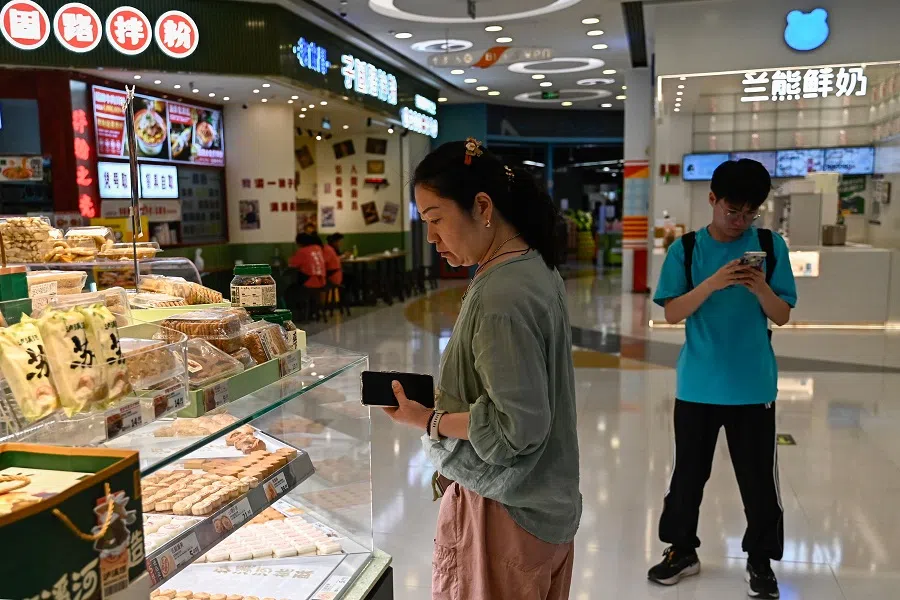Chinese ‘involution’ seeps overseas, overwhelms competitors
Lianhe Zaobao China news editor Yang Danxu notes that the involuted Chinese market has permeated through all sorts of industries, even into the local governments, and is now seeping across borders.

During a recent visit to a furniture store, my friend and I were warmly greeted with tea and water. My friend admired a solid wood table and chair set, and the store owner quickly offered a discount and several small gifts to help seal the deal.
Seeing her hesitance, the salesperson interjected, “How about writing a good review for our store, and we’ll throw in a pair of bolsters?”
My friend left the store with a big bag full of goodies that had nothing to do with furniture: bolsters, cups, essential oils and mobile phone stands.
Fighting for market share
Chinese businesses have come up with various ways to gain customers. Write a good review after dinner to score some free desserts. Eat roasted lamb skewers and receive a gift of air and grass from the prairie, packed in a can. Don’t like the taste of your milk tea? No problem, another one coming right up for free. Bring your own coffee cup and your 15 RMB (US$2.10) beverage will only cost 10 RMB.
Singaporeans who travel to China for business or leisure often marvel at the diverse and innovative marketing strategies in China’s consumer industry, with service much improved compared with a decade or so ago. However, business owners have their hands tied due to the intense competition; they have no choice but to rack their brains, complaining about “involution” while being caught up in it.
Each region is undercutting the others, offering huge subsidies, and jumping into whichever industry is the most popular at the moment.

Involution in China emerged before the pandemic, with fierce competition for top schools, insane housing prices in school districts, and crazy involution in education leaving many overwhelmed. To get promoted — or even just to avoid being laid off — working professionals had to accept the “996” overtime work culture (9am to 9pm, six days a week).
After the pandemic, China’s economy faced a rare slowdown in growth. The pie grew no faster so competition naturally intensified. Involution took on various forms, permeating across industries.
The automotive industry is representative of excessive involution. In the first half of this year, Chinese car companies engaged in a price war, offering large-scale discounts to grab market share. Prices of China-made new energy vehicles (NEVs) continued to drop, with some companies even selling at a loss. According to Chinese media statistics, 70 car models were discounted last year, while 56 models were discounted in just the first five months of this year.
Competition among local governments
With companies caught in a life-or-death struggle of involution, even local governments are embroiled in it. The Chinese State Council’s Economic Daily recently published articles criticising the involution in local governments’ efforts to attract businesses. In the fight to boost their economies, local governments are scrambling to attract people and companies, using various tactics to attract businesses and investments.
Each region is undercutting the others, offering huge subsidies, and jumping into whichever industry is the most popular at the moment.
Attracting businesses and investments without considering local realities and industry foundations would ultimately lead to inefficient competition, industrial homogenisation, and a huge financial burden on the government if a project fails. Even if it succeeds, it is not a result of effective market resource allocation.
Involution among businesses seems beneficial to consumers, but it comes at a cost. In June this year, several leaders of the Chinese auto industry simultaneously spoke against involution.
Once they go overseas, their competitors find it difficult to cope. A businessman once jokingly described companies that have come out of the involution in China as “overwhelming” to foreign companies.

During a forum, Zeng Qinghong, chair of Guangzhou Automobile Group, said, “Such involution is not the way to go. What is the aim of businesses? Profits.”
Li Shufu, founder of Geely Auto, also expressed concerns that a boorish price war will result in cut corners and substandard products, fake sales, and disorderly competition.
Recently, an incident in Hangzhou where a food delivery rider knelt down to a security guard sparked heated discussions and almost led to a mass social incident. Similar conflicts between security guards and food delivery riders are not uncommon, often stemming from punitive measures that target riders. The industry’s stringent rules, which shorten delivery times and impose fines for delays, reflect the intense competition and involution among platforms.
Winner-takes-all mentality
Another phenomenon that has emerged in recent years is the rapid externalisation of China-style involution, like a huge wave sweeping across overseas markets.
With an abundance of human resources, hardworking employees, low production costs, and a developed industrial system, Chinese companies that have survived in this fiercely competitive environment have undergone rigorous testing and are highly mature in terms of technology, supply chains and operational efficiency.
Once they go overseas, their competitors find it difficult to cope. A businessman once jokingly described companies that have come out of the involution in China as “overwhelming” to foreign companies.
China sees such involution as a sort of competitiveness. While competition is part of the market mechanism, leading to the survival of the fittest, allowing companies to stand out and driving industry progress, China’s uniqueness lies in its massive size and the strong production capacity of its companies.
When this competitiveness — which China considers an advantage — moves across borders, the world feels a nearly malicious competition with a winner-takes-all mentality initiated by Chinese companies.

When this competitiveness — which China considers an advantage — moves across borders, the world feels a nearly malicious competition with a winner-takes-all mentality initiated by Chinese companies.
China’s domestic supply exceeds demand, and its production capacity has to be exported overseas. This would disrupt the local market balance and raise concerns. Other countries will also take measures to protect their own local companies from being overwhelmed by the massive wave of Chinese companies.
The debate about “overcapacity” in products such as electric vehicles, batteries and solar panels between China and the West this year is a typical example. It carries overtones of geopolitical manoeuvring and competition for discourse power, but it also genuinely reflects the world’s concerns about Chinese companies bringing involution outside of China.
A few years ago, Chinese leaders said in a video speech at the Davos World Economic Forum that “you lose, I win” and “winner takes all” is not the Chinese philosophy of doing business. So, when Chinese companies seek opportunities overseas, what business philosophy will they follow, and how can they shake off the “winner takes all” image?
This article was first published in Lianhe Zaobao as “中国式内卷出海”.





